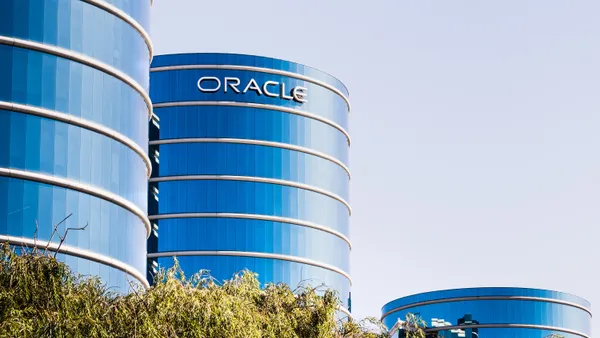Dive Brief:
- Most employees (68%) said they think "work perks" are just as important as health coverage, life insurance and other traditional benefits, according to a survey of 600 small and midsize businesses by Zenefits. The HR software company said small businesses without big-company resources can compete for talent in the tight labor market by offering popular fringe benefits that don't cost much to provide.
- More than 70% of respondents "strongly agreed" or "somewhat agreed" that fringe benefits would be a key consideration in evaluating future jobs. Respondents were more mixed with their responses on whether they would leave their current jobs within a year for another offering more fringe benefits: 40% said they strongly agreed or they somewhat agreed that they would, but a quarter of respondents said they strongly disagreed.
- Respondents identified wellness programs as the most important perk, followed by education programs, financial wellness programs, free meals or snacks and commuter benefits.
Dive Insight:
Benefits play such an important role in employee satisfaction that more than half of workers in a Randstad US study said they have left jobs after hearing the siren calls of better benefits elsewhere. More than 60% of respondents also said they would take a job with a lower salary for better benefits, the survey found. If research tells us anything, employers may be able to drive recruitment, engagement and retention by offering low-budget, meaningful fringe benefits. Like Zenefits points out, anything from free lattes to on-site yoga classes can count.
Voluntary benefits — nontraditional benefits often paid for by employees — have also become must-haves for workers. Among the most popular benefits identified in studies are student-debt repayment plans, identity theft, cybersecurity insurance, pet insurance and financial counseling.
Services that ease employees' personal duties as caregivers have also become a valued nontraditional benefit. Most voluntary benefits address workers' needs in very personal ways, which can make them invaluable perks for talent attraction and employee engagement.













